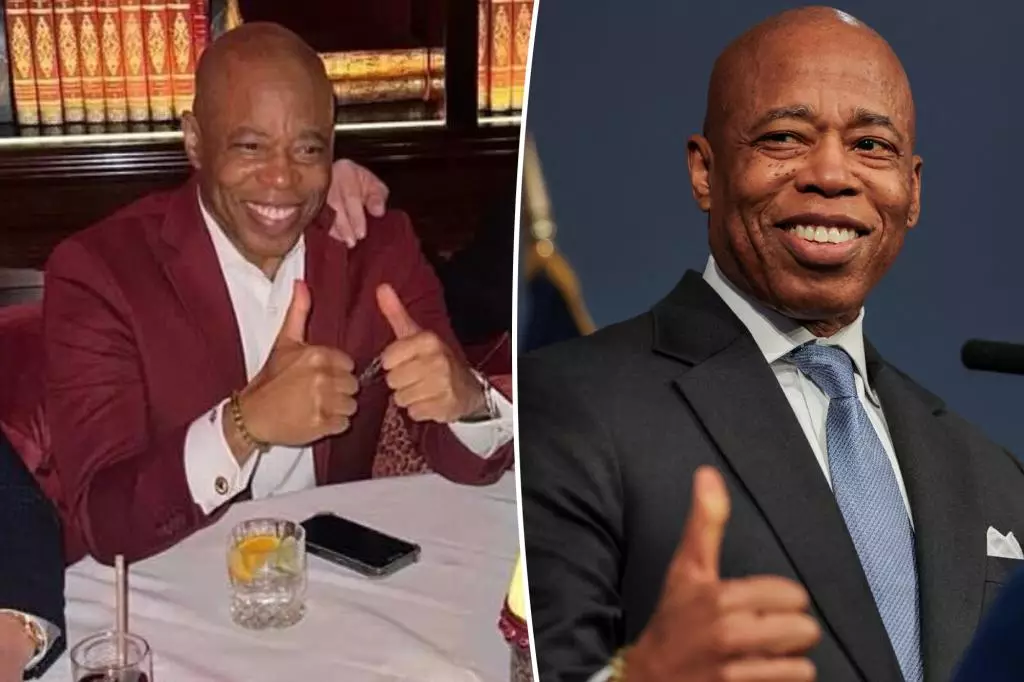New York City Mayor Eric Adams recently found himself transitioning from a storm of legal troubles to vibrant social escapades, marking a notable shift in his public persona. After the U.S. Department of Justice took steps to dismiss corruption allegations against him, Adams was seen indulging in the city’s high-profile nightlife, indicating a possible revival both personally and politically. Last weekend, he was spotted dining at Chez Margaux, an upscale private club, engaging in conversation with philanthropist Alisa Roever. This establishment, which has quickly become a magnet for celebrities and socialites alike, symbolizes the intersection of political influence and social elite culture in New York City.
Adams’ connections have not only drawn public attention due to their opulence but have also raised eyebrows regarding ethical boundaries. Notably, Roever’s previous association with Trump’s inauguration logistics, coupled with her ongoing charity collaboration with Adams’ brother, has sparked discussions about the blending of political and personal interests. Critics have spotlighted this as a manifestation of “ethical sloppiness,” potentially compromising the integrity expected from city officials. This scenario presents a cautionary tale about the risks inherent in mingling governance with personal relationships, especially in a city awash with power and privilege.
The recent decision by the Justice Department to retract five counts of bribery against Adams has critical political ramifications. This decision not only alleviates immediate pressure on the mayor but also indirectly influenced staffing changes within the U.S. Attorney’s Office in the Southern District of New York. As a federal judge contemplates the future of these charges, the case’s unraveling paints a portrait of a political leader on the brink of resurgence amidst legal chaos. Despite the slight reprieve, the specter of scrutiny looms large, pushing Adams to maintain a delicate balance between personal life and public responsibility.
In a move that has stirred speculation regarding his stance toward Trump, Adams has agreed to reopen the US Immigration and Customs Enforcement office on Rikers Island, which had remained closed since 2014. This decision is laden with implications for his administration and its relationship with federal authorities, as Adams has emphasized his intention to engage constructively with the White House regarding immigration policies, particularly in light of ongoing challenges posed by undocumented migration. The urgency of such matters underscores the complexities of urban governance and the need for strategic alliances in policy enforcement.
Despite challenges on multiple fronts—including speculation about his political future and potential moves from state leadership—Adams has publicly affirmed his commitment to run for re-election. This determination reflects a calculated approach to consolidating his base, leveraging both legal victories and social visibility to reaffirm his position as a leading figure in New York City politics. As he navigates the intricate landscape of public service, ethics, and personal connections, the mayor’s path forward will undoubtedly be steeped in public scrutiny and the quest for legitimacy amidst controversies.
